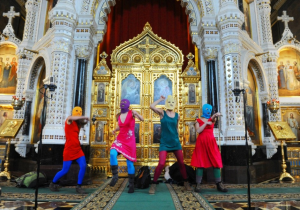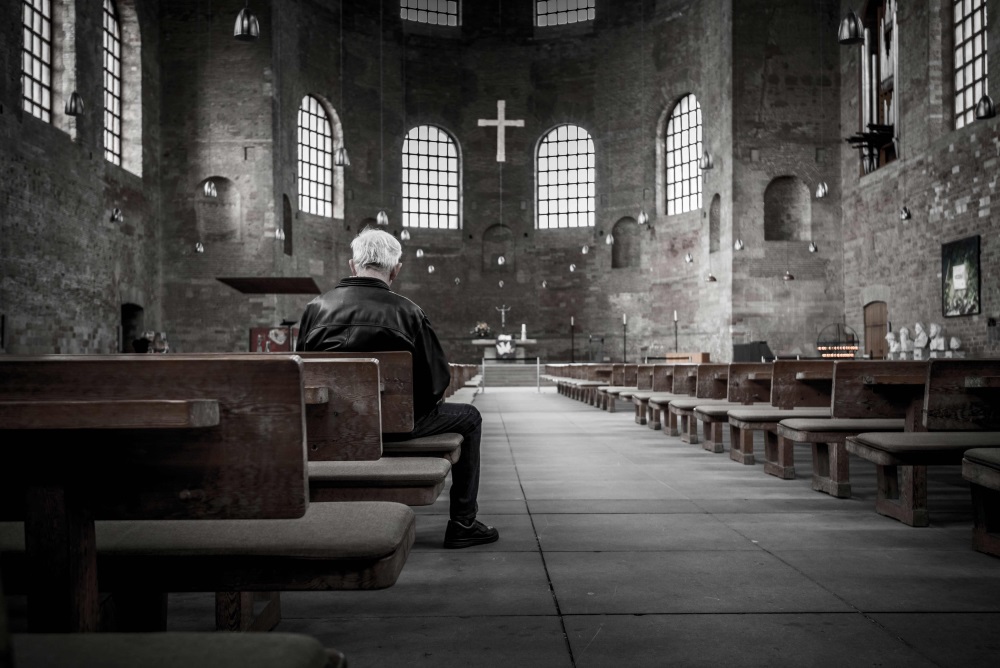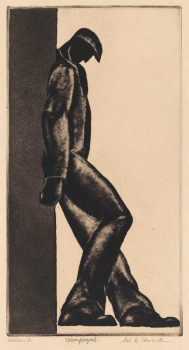Editor’s Note: Readers will argue about the author’s positive assessment of Russian culture in this essay. Don’t get caught up in that. Look instead at the descriptions of ‘Democratic’ West, particularly the spiritual exhaustion we face and our refusal to resist the culture of death that grows around us. Those are indisputable.
Source: Russia Insider
By Iben Thranholm
Russians are returning to Christianity in a modern and contemporary context.
They are familiar with the bitter fruit of atheism and have no appetite for the bleak and barren wasteland it produced.
In Russia, Christianity is associated with being modern and progressive.
The young, the hip, the wise and the wealthy, express their Christianity as a completely natural and straightforward thing.
Today, the spirit of communism shows itself in western worship of human rights, freedom of speech and the elite’s utopian notions of so-called open societies. We are headed for the very wasteland that the Russians were relieved to leave behind.
Russians perceive activists like Pussy Riot as latter-day Bolsheviks.
The subject of this interview is a Danish journalist and theologian who hosted a series of five programmes, entitled “From Russia with Love” on Danish national public service radio, Radio24syv, with the sub-heading “An Unbiased Look at Putin’s Russia.”
Inspired by Emperor Constantine, she believes Christianity in the West can be rejuvenated by looking to the East. Iben is aware of the sheer enormity of this task. “Such, alas, is the depth to which Western hatred for Christianity has sunk,” says the theologian, who does not hesitate to defend President Putin, on whom the Western media delights in heaping derision and scorn.

Pussy Riot
“The Pussy Riot case opened the door to Russia for me,” she explains.
“I understood that Russia is a country that refuses to compromise on Christian values. Russia is not just a country or a nation, Russia is a spiritual concept, a state of mind. Criticism of President Putin was not the crime for which the activists were tried and convicted. Their crime was the invasion of the Christ-The-Saviour Cathedral, the holiest of places, and engaging in a blasphemous act in front of the iconostases.
In the West, freedom of speech is widely deployed for the purpose of desecrating religion, but Russia does not permit crossing the line into blasphemy. That really fascinated me, and so I travelled to Moscow to learn more and this eventually resulted in a series of radio programmes trying to help Danes move beyond the tedious and unhelpful caricature-like clichés and provide them with a nuanced view of Russia.”
What was your impression of Russia?
“I experienced a fantastic energy, a moral energy similar to America in the ’50s with the old moral values. I met helpful, poetic and cultured people with a spirit of self-sacrifice I have not seen before. The atmosphere in Moscow is completely different from that of any capital in Europe, and unlike here in the West, I feel much more spiritually free in the East.
While the West is deriding and disowning Christianity and Europe revels in self-loathing, Russians are returning to Christianity in a modern and contemporary context. Bear in mind that Christianity was suppressed under Communism, which was atheistic. Russians are familiar with the bitter fruit of atheism and have no appetite for the bleak and barren wasteland it produced.
The interesting thing is, that in Russia, Christianity is associated with being modern and progressive. It is the spirit of the young, the hip, the wise and the wealthy, who express their Christianity as a completely natural and straightforward way of life. Christianity is simply fashionable, but not in the superficial Western pop manner. Christianity’s roots grow deep in the soil of Russian life, and they look with amazement at how we guard, or rather, disregard, our spiritual heritage.
Not only that: They discern in our obsession with political correctness, and the social liberal opinion policing of the general media and academia, a new manifestation of the terror of totalitarianism they counted themselves blessed to escape after 75 terrible years.
After the Cold War, East and West swapped roles spiritually, culturally and morally. Cultural Marxism now holds unrestrained sway in the West.
But Communism and Social Democracy are probably not the same?
“Let me put it a different way. During the rule of Communism, Russia found itself in the grip of a culture of death, but she is returning to life, in the sense of Christian culture with a strong awareness of the historical roots and continuity.”
The situation in the West is the complete opposite. We celebrate death and have surrendered to the satanic view of man in a self-righteous rage and rant against God. We can divorce with ease on-line. We prioritise work and career above family responsibilities especially raising children. We favour euthanasia, abortion on demand, homosexual rights and same-sex marriage while our cities are submerged in Islam and growing segregation.
Russia has chosen a completely different direction, and it is one of the reasons that many Russians perceive activists like Pussy Riot as latter-day Bolsheviks. They invade and desecrate the sanctity of the church, a holy place. The West celebrates this as progress and prosperity. Russians are reminded that the spirit of communism is still alive. It merely assumes new forms and takes up residence in the West, where liberals and progressives love and adore Pussy Riot.
Today, the spirit of communism shows itself in western worship of human rights, freedom of speech and the elite’s utopian notions of so-called open societies. We are headed for the very wasteland that the Russians were relieved to leave behind. Patriarch Kirill has warned the West: “Do not take the path we took. We tried it and it leads to destruction!”
Recently the Russian military held an exercise based on the scenario of an attack on northern Norway, Aaland, Gotland and Bornholm. Do we just turn the other cheek?
“Well, that’s not the true way to look at it. The Russians hold such an exercise because of the geopolitical pressure that NATO creates by deploying hostile military forces along the Ukrainian border and in the old Warsaw Pact countries.
Russian foreign policy has long been demonized. Russia is compelled to respond to a situation it did not create, which is not the same as aggression. Why should Russia accept being cut off from access to the sea, from Saint Petersburg to Vladivostok? Such a thing is unthinkable. With bald-faced hypocrisy, the West makes it look like Russia is our new enemy. The truth is exactly the opposite. The West is its own worst enemy.





 Janice Shaw Crouse, a speechwriter for the first President Bush, is the author of
Janice Shaw Crouse, a speechwriter for the first President Bush, is the author of 




